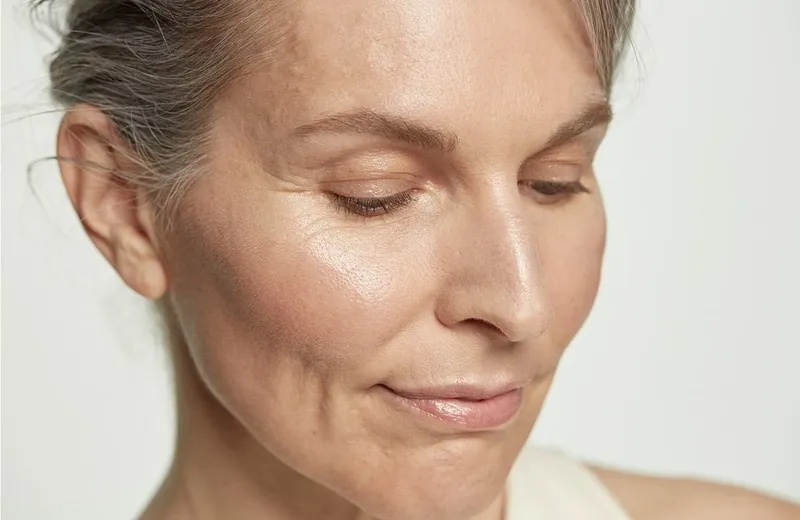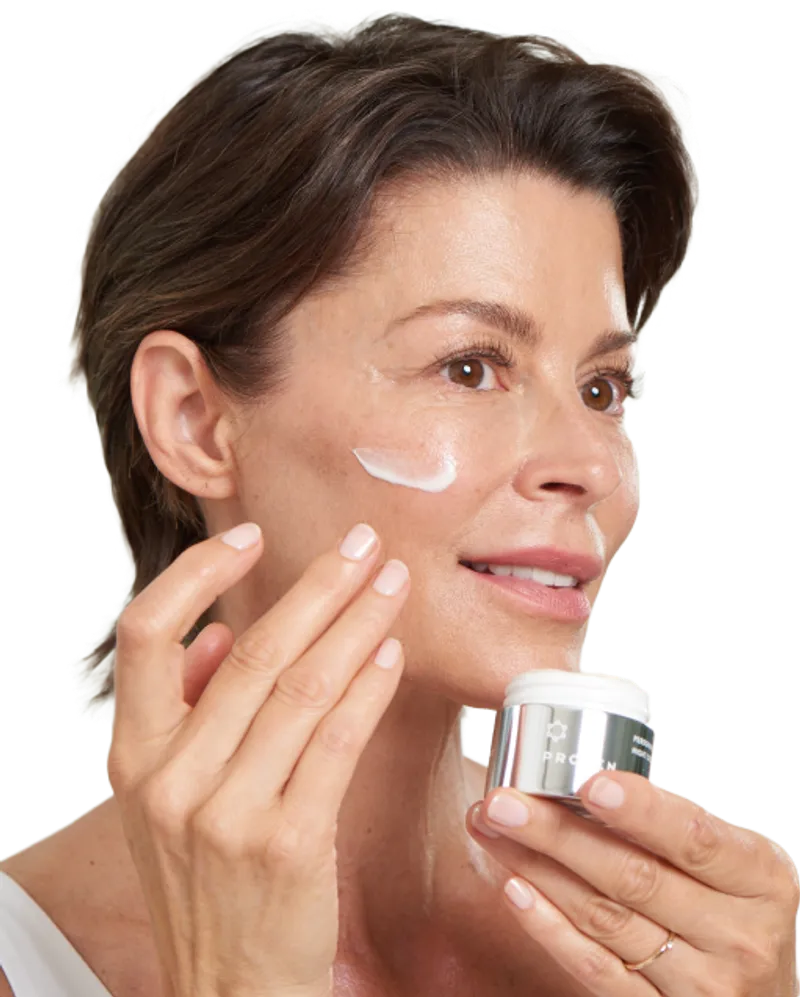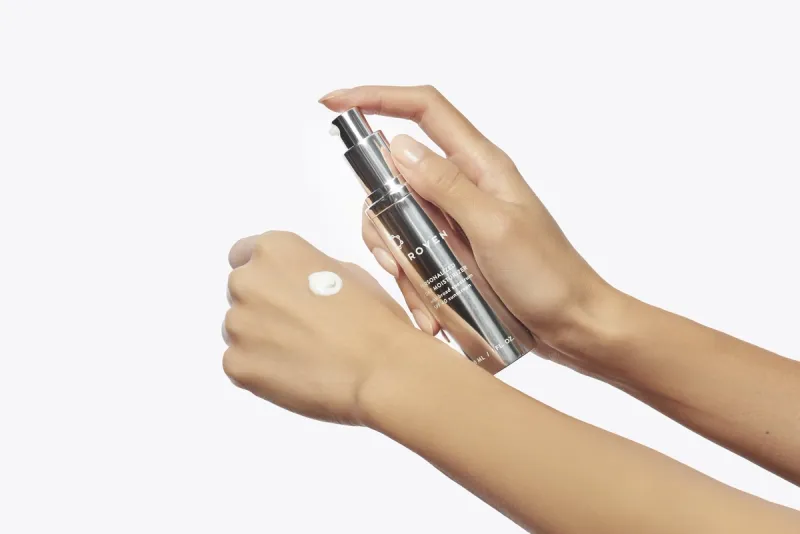
When we experience the side effects of common skin conditions like acne, psoriasis and eczema, it can have an effect on our self-esteem and leave us feeling less than confident in our own skin.
The good news is that there are many options for treating and managing skin conditions and reducing the appearance of breakouts and blemishes, so we can focus on the things that really matter.
Tretinoin and retinol are two of the ingredients that you’ll find in many skincare products, and they can be effectives for reducing and treating breakouts and leaving your skin feeling fresh, happy, and healthy.
What is Tretinoin?
Tretinoin is used for keeping your pores clear and reducing the risk of clogging that leads to whitehead and blackhead breakouts. If you are struggling to get relief from acne with traditional medications or practices, tretinoin might be the right approach, since it can get deep and clear out the pores in a way regular cleansers often can’t.
Tretinoin is a product known as a retinoid, which utilizes the healing benefits of vitamin A or synthetic vitamin A derivatives to promote healthy cell turnover and rejuvenation.
Oftentimes, acne is caused by the clogging of pores with sebum, an oily secretion from the skin, as well as dead skin cells. By working to remove those dead cells, as well as opening and cleansing out the pores, tretinoin can help to reduce the likelihood of acne breakouts and the underlying causes.
What is Tretinoin Used For?
Because it can be so effective at removing dirt and bacterial build-up from the skin, tretinoin has many benefits. Here are some of the most common uses for tretinoin when it comes to healthy and happy skin.
What is Tretinoin?
Tretinoin helps to manage and balance the production of oil from your skin, opens your pores, and cleans out irritants and unwanted bacteria. All that helps to reduce the appearance of acne, which develops when the pores become clogged with oil, dead skin cells, and dirt. Tretinoin is often recommended for stubborn breakouts that aren’t responsive to cleansers and other treatment methods.
It Reduces the Appearance of Wrinkles
It is very important to protect your skin, especially when you spend a lot of time outside in the sun. Not only can too much sun exposure cause or increase conditions like sunspots, sun burns, and wrinkles, but it can also lead to more lasting medical conditions, like skin cancer, when left unchecked. If you do notice signs of wrinkles or uneven skin tones, however, tretinoin can be a useful option for managing and reducing their appearance.
It Provides Relief From Inflammation
Blackheads and whiteheads are non-inflammatory, whereas conditions like papule and pustule acne are inflammatory and often much more severe. They are characterized by small, pus-filled bumps and blemishes and are often associated with inflammation and swelling in the area around the spots, which can lead to discomfort, pain, and itching.
Tretinoin is helpful for reducing inflammation by helping to regulate the amount of oil your skin produces and exfoliating the skin, so you can get relief from inflammatory acne.
It Supports Scar Healing
When tretinoin is used to improve skin cell turnover, that isn’t just helpful for removing the appearance of wrinkles and dark spots. It can actually mean that your cells begin to heal faster, and signs of scars and skin damage begin to fade.
What is Retinol?
Retinol is another great option for managing the effects of aging, acne, and other common skin conditions. It shares many similarities with tretinoin, since they are both types of retinoids, but there are a few things that set them apart, as well.
Retinol will be used for many of the same conditions that can be treated with tretinoin, but often for the less extreme cases.
If you are experiencing a stubborn case of acne, looking to reduce the appearance of wrinkles, sunspots, or age spots, or want to smooth out the skin after a condition like eczema, then retinol might be recommended before tretinoin.
What’s the Difference Between Retinol and Tretinoin?
Both retinol and tretinoin are retinoids, which means they use the benefits of vitamin A or synthetic vitamin ingredients to combat acne, clear pores, and even out the skin tone. They can help to increase cell turnover and make your skin appear smoother and healthier.
Here are a few key differences you’ll want to consider when deciding which retinoid product is right for you.
Availability
By contrast, tretinoin has a much larger concentration of pure retinoic acid. That’s why you’ll find retinol available over the counter and in a great many more products than you will tretinoin, which is only available with a prescription.
Strength and Speed
That said, retinol can be just as effective at reducing or eliminating the appearance of acne and other skin conditions. It will just do so more gradually. If you’re comfortable taking time to let your skin adjust to the new routine, retinol might be the better option for you.
Side Effects
By contrast, retinol is a slower acting and much lower impact retinoid. The effects won’t appear as quickly, but you’re far less likely to experience uncomfortable side effects. That said, if you notice reactions or discomfort, it’s important to discuss next steps with a medical professional before continuing use.
Conclusion
If you’re experiencing symptoms of breakouts or acne, you’re not alone. Both inflammatory and non-inflammatory acne are common in teens and young adults alike, and they can often be associated with other skin conditions, which can leave you feeling frustrated and uncomfortable in your own skin.
Thankfully, you have options. Both tretinoin and retinol are great ways to manage and reduce the appearance of acne and the conditions that allow it to develop. And they can be used for other skin conditions as well, including wrinkles, aging, scars, and spots.
There are benefits and drawbacks to using both, including the availability of products, the speed and effectiveness with which they work, and possible side effects that can cause irritation, discomfort, and dryness.
When it comes to finding the right skincare products for your needs, PROVEN Skincare is here to help. With the use of our Skin Quiz and carefully cultivated ingredient and skin concern database, we make it simple and easy to develop the right skincare routine for your needs, so you can feel happy, healthy, and confident in your own skin today.
Whether you’re looking for irritation relief, sun protection, to reduce the appearance of wrinkles, or something else, PROVEN Skincare has what you need to get started with ease today.
Sources









